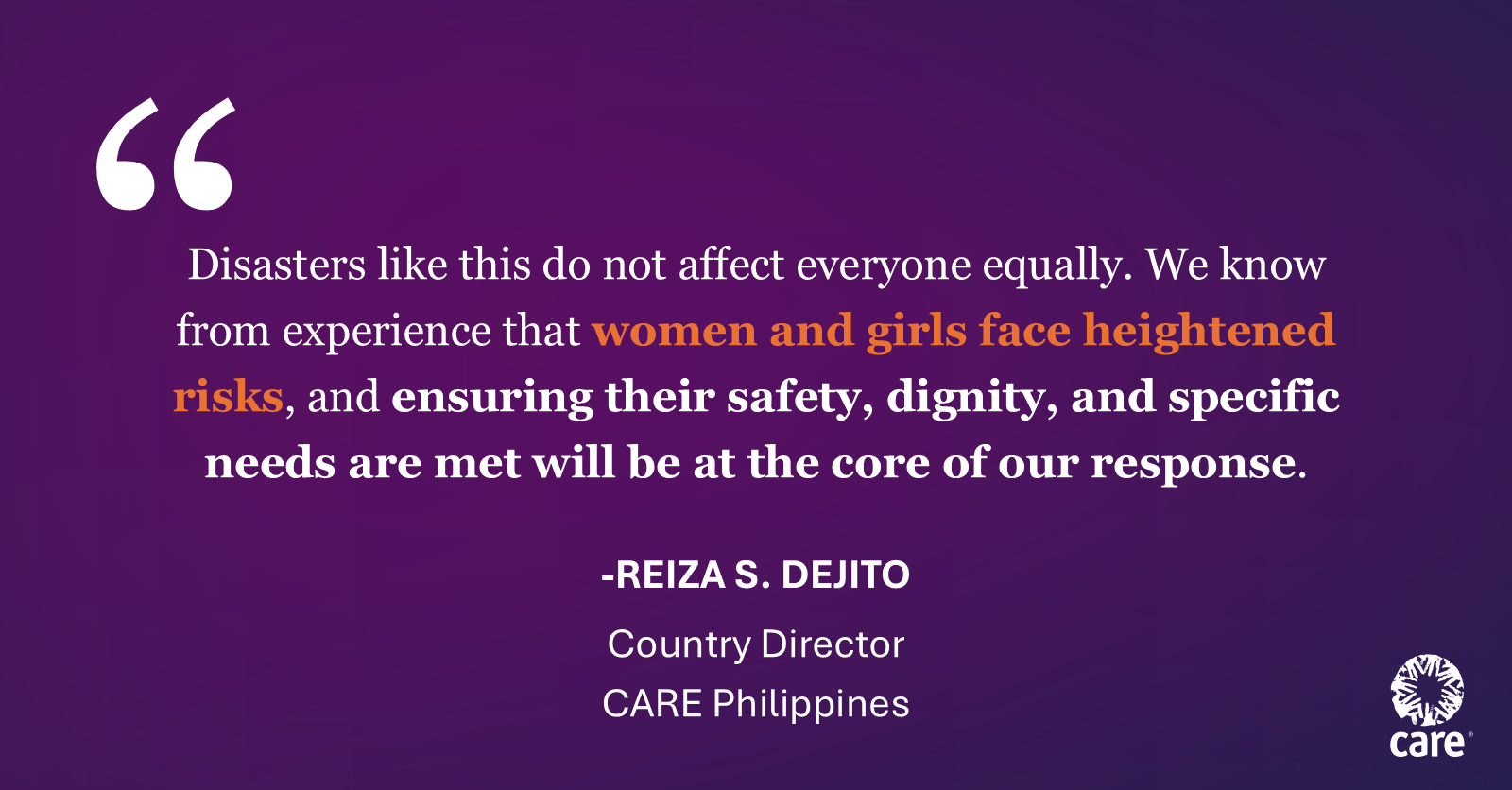CARE Philippines statement on the intensification of Tropical Cyclone Nando

MANILA, PHILIPPINES (September 20, 2025) – CARE and its local humanitarian partners are on high alert as Tropical Cyclone Nando (internationally known as Ragasa) threatens to bring destructive winds and torrential rains Central and Northern Luzon. The cyclone is anticipated to strengthen into a Super Typhoon by Monday, September 22. Emergency response teams are on standby to conduct rapid needs assessments and deliver immediate, life-saving assistance to the communities expected to be hardest hit.
“Our immediate concern is for the safety of families in the typhoon’s path, especially those in low-lying, coastal, upland, and indigenous communities. Disasters do not affect everyone equally. We know from experience that women and girls face heightened risks, and ensuring their safety, dignity, and specific needs are met will be at the core of our response. We are coordinating closely with local partners and call for open, direct humanitarian access so local responders can reach last-mile communities with life-saving support.”
— Reiza S. Dejito, Country Director, CARE Philippines
“With PAGASA projecting Super typhoon level for TC Nando, our preparations are moving into the operational phase. Our assessment teams are ready for deployment, and provide emergency supplies for immediate distribution to the most affected families. Our partnerships with community leaders, NGOs and local governments on the ground will be crucial to guide our efforts, ensuring the support we provide is timely and appropriate.”
— Jessan Catre, Humanitarian, Disaster Resilience and Peacebuilding Coordinator, CARE Philippines
For media inquiries, please contact:
Mary Therese L. Norbe, CARE Philippines Communications Specialist
Email: marytherese.norbe@care.org, Contact Number: +639199117534
Note to Editors: CARE Philippines has provided humanitarian and development support since 1949. As one of the most disaster-prone countries globally, the Philippines faces significant challenges, and CARE remains at the forefront of delivering life-saving support to communities most in need. According to the World Risk Index report, the Philippines has been ranked as the country most at risk for disasters for three consecutive years. This context underscores the critical importance of CARE’s work in disaster preparedness and strengthening local capacity.

